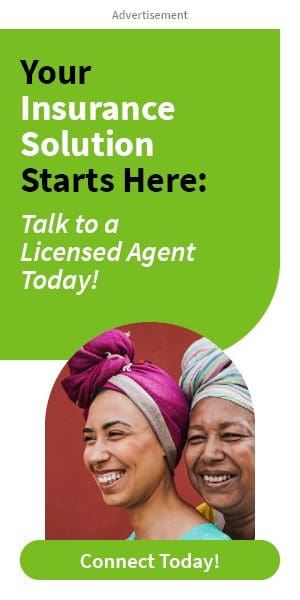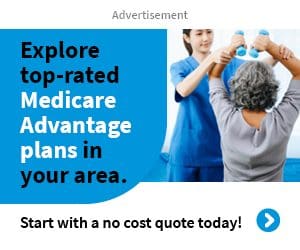Key Takeaways
-
In 2025, you have more access than ever to Medicare help—but not all of it is helpful. Knowing where to look (and what to ignore) will save you time and frustration.
-
Clear, unbiased, and updated information sources are the key to confident Medicare decisions. The best resources simplify—not complicate—your planning.
Why Medicare Resources Feel Overwhelming in the First Place
When you begin exploring Medicare, it doesn’t take long before you’re buried under leaflets, websites, plan brochures, and phone calls. With four parts—A, B, C, and D—and dozens of supplemental options, it’s easy to feel like you need a degree just to understand your healthcare.
What makes things worse is that not all Medicare resources are built to help you—they’re often built to sell. In 2025, many of the tools you encounter are tied to private interests, which can shift the focus from helping you understand to pushing you into a decision.
That’s why finding neutral, educational Medicare resources matters more than ever.
What Makes a Resource Actually Useful
You don’t need 20 tabs open and a notebook full of Medicare terms. What you need is a handful of trusted, updated, and digestible sources that respect your time and your needs.
A good Medicare resource will:
-
Use clear, non-promotional language
-
Stay updated with 2025-specific changes, such as Part D’s out-of-pocket cap
-
Address all parts of Medicare, not just the parts that come with private options
-
Walk you through timelines like Initial Enrollment, General Enrollment, and Special Enrollment Periods
-
Focus on your situation, whether you’re turning 65, working past 65, or helping a spouse or parent
If a resource doesn’t do all of the above, it’s probably more noise than help.
Where to Start When You’re Brand New to Medicare
It’s tempting to Google and dive in, but that often leads to confusion rather than clarity. Instead, begin with a structured path.
Start with these three types of resources:
-
Government-backed education — These offer non-commercial, reliable explanations of Medicare basics. These include printed handbooks, official websites, and contact centers.
-
Enrollment-specific help — When you’re getting close to signing up, look for enrollment timelines, step-by-step instructions, and eligibility tools.
-
Live human support — Especially valuable when your case has wrinkles (like still working past 65), talking to someone trained in Medicare rules makes all the difference.
Each type plays a role in different phases of your Medicare journey. If you’re not sure which you need, focus first on education.
Understanding the Key Timeframes in 2025
You’ll make better use of Medicare resources when you know what deadlines apply to you. Medicare has specific enrollment periods in 2025 that shape your choices:
1. Initial Enrollment Period (IEP)
-
Starts 3 months before you turn 65
-
Ends 3 months after your birthday month
2. General Enrollment Period (GEP)
-
January 1 to March 31
-
For those who missed IEP and don’t qualify for a Special Enrollment Period
3. Annual Enrollment Period (AEP)
-
October 15 to December 7
-
For changing Medicare Advantage or Part D plans
4. Medicare Advantage Open Enrollment Period (MA OEP)
-
January 1 to March 31
-
For those enrolled in Medicare Advantage who want to switch or drop plans
5. Special Enrollment Periods (SEPs)
-
Triggered by specific life events such as losing employer coverage, moving, or Medicaid changes
The right resources will explain these periods in context, not just as isolated definitions. Always check that the timeline advice you’re getting is for the current year—2025.
Watch Out for Information Overload Traps
In 2025, digital overload is real. Between search engines, social media, email newsletters, and unsolicited mail, it’s easy to lose track of what’s useful.
Here are a few red flags that a Medicare resource may not have your best interest at heart:
-
Aggressive marketing: Pop-ups, banners, and constant calls to sign up quickly
-
One-size-fits-all solutions: Medicare isn’t a one-plan-fits-all program—resources that ignore your specific needs are incomplete
-
No clear author or source: If you can’t tell who wrote the information or when it was last updated, don’t rely on it
-
Outdated references: If the material still lists 2024 costs and hasn’t updated 2025 figures, be cautious
Your goal should be to reduce noise, not add to it. Stick to resources with clearly listed dates, neutral tone, and a focus on education—not persuasion.
How to Use Resources Based on Your Stage in the Medicare Journey
Where you are in the Medicare process shapes what kind of help you need. Here’s how to break it down:
If you’re approaching 65:
-
Focus on eligibility, costs, and deadlines
-
Use comparison tools for Parts A, B, and D
-
Learn how to coordinate Medicare with employer insurance if you’re still working
If you’ve already enrolled:
-
Track changes during the Annual Enrollment Period each fall
-
Review plan changes through Annual Notice of Change (ANOC) letters
-
Use online portals or handbooks to understand coverage specifics and costs
If you’re a caregiver or adult child helping someone else:
-
Use resources that explain Medicare from a planning and decision-making point of view
-
Look for caregiver-specific tools, FAQs, and printable guides
Tailored tools make things easier—don’t settle for generic brochures or random blog posts.
Resources That Are Worth Bookmarking
You don’t need hundreds of links. In fact, narrowing it down to a shortlist of well-rounded resources makes your research smoother and more reliable.
Here’s what should be in your Medicare folder:
-
Official Medicare handbook for 2025 — Updated every year and full of direct information
-
Enrollment checklists — Especially helpful during your Initial or Annual Enrollment Period
-
Coverage comparison worksheets — For evaluating differences between Original Medicare and Medicare Advantage
-
Premium and deductible cost charts — Use these only if they reflect 2025 numbers
-
Glossary of Medicare terms — Bookmark this for clarity when unfamiliar words pop up
By keeping just 5–6 high-quality resources on hand, you’ll cut through the noise.
Don’t Overlook the Value of Talking to Someone
Despite the digital age, some of the most helpful Medicare resources are still people. Speaking with someone—whether by phone, in person, or via chat—can clarify things in ways that no PDF ever could.
Live support is especially helpful when:
-
You’re dealing with late enrollment or penalty questions
-
Your employment or retirement situation is complex
-
You’re trying to decide between Original Medicare and Medicare Advantage
Make sure the person you’re speaking with is a licensed agent or qualified counselor. Their guidance should help you make sense of your options without pressure.
Simplifying Medicare Is Possible—If You Choose Wisely
Finding clarity in Medicare doesn’t have to be exhausting. When you choose the right sources—ones that prioritize your understanding—you can move from feeling overwhelmed to feeling prepared.
In 2025, use the tools that focus on facts, timelines, and your individual path. Whether you’re new to Medicare or reviewing your plan, the best approach is to cut through the noise, slow down, and get support when needed.
If you’re ready to make sense of your choices, speak with a licensed agent listed on this website for personalized help. They can walk you through the details that matter most.










